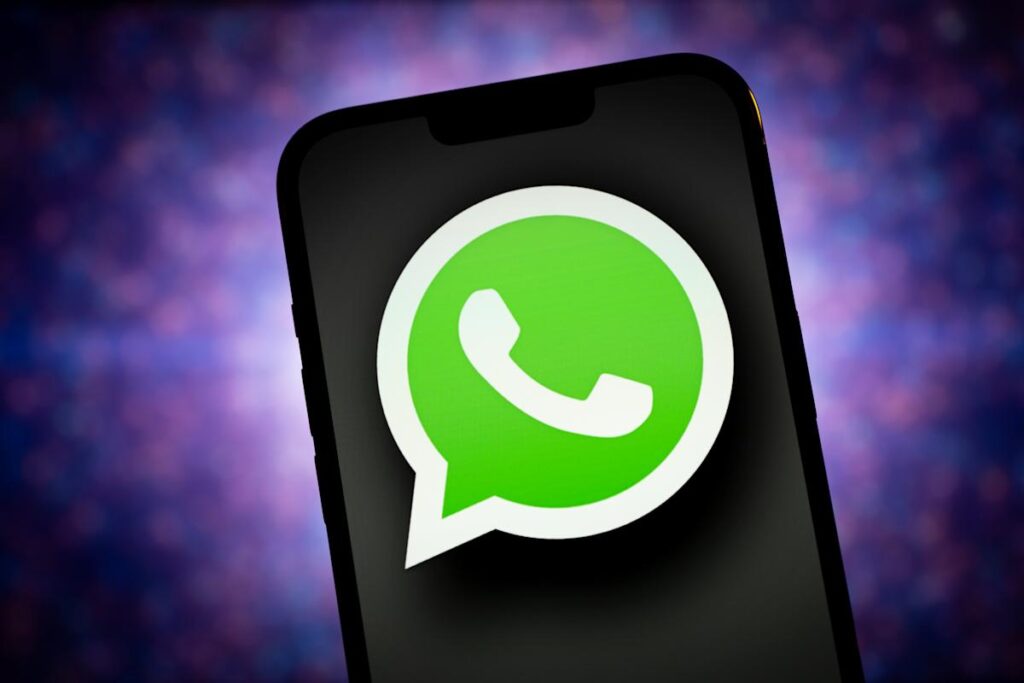
<span class=caption-credit> NurPhoto via Getty Images</span>
Meta Wins $167 Million in Landmark Lawsuit Against NSO Group’s Pegasus Spyware Attack on WhatsApp
Table of Contents
- Introduction to the Meta WhatsApp NSO Group Lawsuit
- Background: The Pegasus Spyware Attack on WhatsApp
- The Legal Battle Between Meta and NSO Group
- The $167 Million Verdict Against NSO Group
- Implications for Cybersecurity and Digital Privacy
- NSO Group’s Response and Future Steps
- Meta’s Future Plans for the Damages
- Conclusion: A Landmark Win for Digital Privacy
Introduction to the Meta WhatsApp NSO Group Lawsuit
In a landmark victory for digital privacy and cybersecurity, a jury has ruled that NSO Group, the company behind the infamous Pegasus spyware, must pay Meta more than $167 million in damages for targeting WhatsApp users with sophisticated malware. This verdict represents one of the largest judgments against a spyware developer and sets a significant precedent in the ongoing battle against unauthorized surveillance technologies.
The Meta WhatsApp NSO Group lawsuit culminated in a decisive win after years of legal proceedings, highlighting the serious consequences for companies that develop and deploy invasive surveillance tools against communication platforms. The case centers around NSO Group’s Pegasus spyware, which was used to infiltrate WhatsApp’s encryption and compromise users’ devices.
Key Verdict Details:
The jury awarded Meta precisely $444,719 in compensatory damages and an additional $167,254,000 in punitive damages, bringing the total to over $167.6 million in the WhatsApp security breach case.
Background: The Pegasus Spyware Attack on WhatsApp
Meta initiated legal action against NSO Group in 2019 following the discovery of a highly sophisticated cyber attack targeting WhatsApp users. The Pegasus spyware exploitation technique was particularly insidious as it could infiltrate devices through WhatsApp video calls, even when those calls went unanswered. This zero-click attack vector meant that users didn’t need to take any action to become compromised.
According to Meta’s investigation, more than 1,400 WhatsApp users across 20 countries were targeted by this malware via WhatsApp, including journalists, human rights activists, political dissidents, and government officials. Once infected, the Pegasus spyware could effectively turn a smartphone into a surveillance device, accessing messages, photos, microphone, camera, and location data.
The Meta WhatsApp NSO Group lawsuit verdict delivers a significant blow to the commercial spyware industry. (Image credit: NurPhoto via Getty Images)
The Legal Battle Between Meta and NSO Group
Following the discovery of the WhatsApp security breach, Meta filed a lawsuit under the U.S. Computer Fraud and Abuse Act, alleging that NSO Group had illegally accessed their systems. NSO Group attempted to claim sovereign immunity, arguing that they provided tools to government clients and therefore should be protected from legal action.
However, in 2021, a significant development occurred when the U.S. Court of Appeals for the Ninth Circuit rejected NSO Group’s claim for sovereign immunity. This ruling allowed Meta’s lawsuit to proceed to trial. Last year, a judge ruled definitively that NSO Group had violated the U.S. Computer Fraud and Abuse Act through its targeting of WhatsApp users with Pegasus spyware.
The week-long jury trial that followed was focused specifically on determining the appropriate damages that NSO Group should pay to Meta for the WhatsApp hacking incidents. The substantial punitive damages awarded indicate that the jury found NSO Group’s actions particularly egregious.
The $167 Million Verdict Against NSO Group
The jury’s decision to award Meta over $167 million in damages represents one of the most significant financial penalties ever imposed in a cybersecurity case. The breakdown of $444,719 in compensatory damages and $167,254,000 in punitive damages reflects both the direct costs incurred by Meta and the jury’s determination that NSO Group’s actions warranted substantial additional punishment.
In a statement following the Meta WhatsApp NSO Group lawsuit verdict, WhatsApp’s VP of Global Communications Carl Woog emphasized the importance of this outcome, describing it as “a critical deterrent to this malicious industry against their illegal acts aimed at American companies and the privacy and security of the people we serve.”
Analysis of the Punitive Damages:
The substantial punitive damages (over 375 times the compensatory damages) send a powerful message about how seriously the jury viewed NSO Group’s actions in deploying Pegasus spyware against WhatsApp users. This disproportionate ratio is relatively rare in civil litigation and indicates the jury’s intent to deter similar behavior in the future.
Implications for Cybersecurity and Digital Privacy
The Meta WhatsApp NSO Group lawsuit outcome has far-reaching implications for the cybersecurity landscape and digital privacy protection. First, it establishes a clear legal precedent that commercial spyware companies can be held accountable in U.S. courts for attacks on communication platforms, regardless of claims about serving government interests.
This verdict also creates significant financial risk for companies in the surveillance technology sector, potentially deterring investment and development in similar tools. The cybersecurity industry will likely see this as validation that legal systems can effectively respond to sophisticated digital threats.
For technology users worldwide, the ruling in the WhatsApp security breach case reinforces the concept that privacy is a legally protected right, even in digital spaces. This may encourage other technology companies to be more aggressive in legally pursuing entities that compromise their platforms’ security.
NSO Group’s Response and Future Steps
NSO Group has predictably contested the verdict, with their representative Gil Lainer describing it merely as “another step in a lengthy judicial process.” The company has indicated their intention to pursue “further proceedings” or an appeal against the Meta WhatsApp NSO Group lawsuit outcome.
In their public response, NSO Group continues to defend their Pegasus spyware technology, stating: “We firmly believe that our technology plays a critical role in preventing serious crime and terrorism and is deployed responsibly by authorized government agencies.” They further claimed that “extensive real-world evidence and numerous security operations that have saved many lives, including American lives, was excluded from the jury’s consideration in this case.”
Despite these claims, NSO Group faces increasing international pressure beyond just the WhatsApp hacking case. In 2021, the U.S. Department of Commerce placed NSO Group on its “Entity List,” effectively restricting American companies from doing business with them. The company has also faced lawsuits from Apple and criticism from numerous human rights organizations.
Meta’s Future Plans for the Damages
WhatsApp’s Carl Woog acknowledged that collecting the awarded damages from NSO Group might be challenging, stating that Meta knows it has “a long road ahead.” However, he outlined an admirable intention for the funds, if successfully collected: “Ultimately, we would like to make a donation to digital rights organizations that are working to defend people against such attacks around the world.”
Beyond the financial aspects, Meta has indicated that they plan to pursue a court order specifically preventing NSO Group from targeting WhatsApp in the future. This injunctive relief would provide additional protection for WhatsApp’s users against Pegasus spyware attacks.
This approach demonstrates that Meta’s objectives in the WhatsApp security breach case extend beyond financial compensation to include broader protections for digital privacy and support for advocacy organizations working in this space.
Conclusion: A Landmark Win for Digital Privacy
The Meta WhatsApp NSO Group lawsuit verdict represents a watershed moment in the fight against commercial spyware and unauthorized surveillance. By imposing significant financial penalties on NSO Group, the U.S. legal system has established that companies developing invasive surveillance technologies can be held accountable for their misuse.
For WhatsApp users and digital citizens worldwide, this outcome provides reassurance that major technology platforms are willing and able to defend their privacy and security through legal channels when necessary. The case also highlights the ongoing tension between cybersecurity tools developed for purported law enforcement purposes and their potential for misuse against journalists, human rights defenders, and political dissidents.
As digital privacy continues to be a central concern in our increasingly connected world, the precedent set by this verdict will likely influence how technology companies, spyware developers, and governments approach the complex issues surrounding surveillance, security, and privacy rights for years to come.





